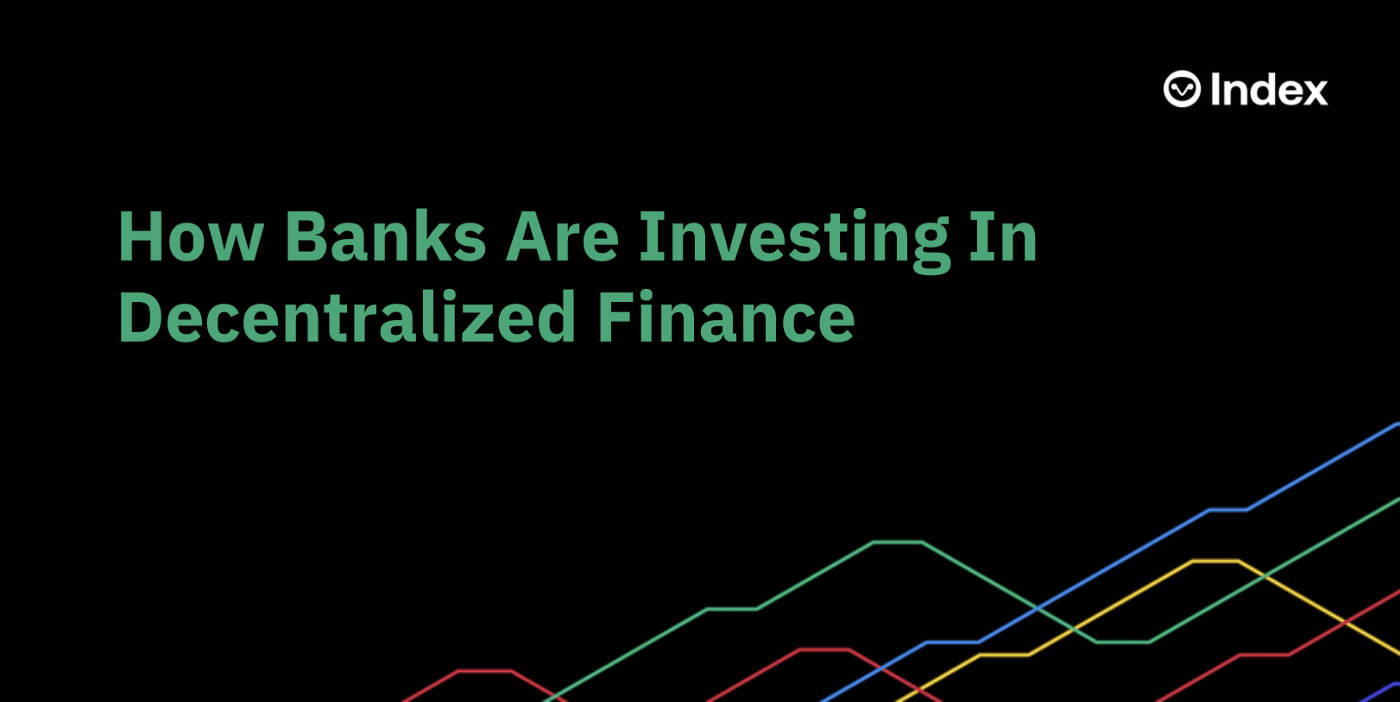
If at first traditional finance was skeptical about cryptocurrencies and decentralized finance, last month made it clear investing in DeFi is an industry-wide priority. Deutsche Bank, Wells Fargo, Citigroup, Capital One, UBS, Bank of America and other major financial institutions are all focused on hiring talent in crypto to stay ahead of the curve, including professionals that can design crypto offerings and engineers that can build blockchain technologies.
Though CEO of JP Morgan Chase Jamie Dimon originally called Bitcoin a fraud back in 2017, the bank has redirected their attention to crypto — including creating their own coin. JPM Coin was launched in 2019 by Onyx, a division of the bank on an internal platform modeled off of the blockchain. In recent months, the bank also began offering to place private bank clients into a few crypto funds, most recently through the crypto firm NYDIG.
In March, Morgan Stanley became the first big bank to offer cryptocurrency investment to clients who have over $2 million in assets. The shift came after clients’ insistence that they have exposure to crypto investments. Goldman Sachs added a digital assets trading desk division earlier this year and has begun trading bitcoin-linked derivatives.
“In the next five to 10 years, you could see a financial system where all assets and liabilities are native to a blockchain, with all transactions natively happening on chain,” Mathew McDermott, the new global head of digital assets at Goldman Sachs said in an interview. In October, the bank also began sending hedge fund clients information about crypto research through their digital platform containing 50,000 investors, with the first report covering DeFi and Ethereum, a move that further confirms major investors in the traditional finance space are seeking out opportunities for cryptocurrency investing and analysis.
Last month, Mastercard also announced it would be partnering with Bakkt, a company that recently went public, to expand into the crypto space by offering clients crypto wallets, rewards in crypto, and the ability to earn points that customers can convert into crypto or spend at a retailer. “We want to offer all of our partners the ability to more easily add crypto services to whatever it is they’re doing,” Sherri Haymond, Mastercard’s executive vice president of digital partnerships, told CNBC.
The first cryptocurrency ETF, the ProShares Bitcoin Strategy ETF (BITO), started trading last month, too, and tracks bitcoin future prices. Other banks and payment processing companies are transitioning to accepting crypto on their platform as well. Venmo, the popular peer-to-peer payment platform owned by PayPal, recently incorporated crypto onto their platform by allowing users to buy, hold or sell Bitcoin, Etherium, Litecoin or Bitcoin Cash.
As more and more big institutions are investing in crypto, the Federal Reserve is discussing whether to release their own digital currency as of September, and will release a report later this year.
- 000
- 2019
- All
- All Transactions
- Allowing
- america
- analysis
- Assets
- Bakkt
- Bank
- Bank of America
- Banks
- Bitcoin
- Bitcoin Cash
- blockchain
- blockchain technologies
- build
- buy
- capital
- capital one
- Cash
- ceo
- chase
- Citigroup
- CNBC
- Coin
- Companies
- company
- Creating
- crypto
- crypto wallets
- cryptocurrencies
- cryptocurrency
- curve
- Customers
- CZ
- dc
- decentralized
- Decentralized Finance
- DeFi
- Derivatives
- Design
- Deutsche Bank
- digital
- Digital Assets
- Engineers
- ETF
- ethereum
- executive
- Expand
- Federal
- federal reserve
- finance
- financial
- Financial institutions
- Firm
- First
- follow
- fund
- funds
- future
- Global
- goldman
- Goldman Sachs
- head
- hold
- How
- hr
- HTTPS
- ia
- Including
- information
- institutions
- Interview
- investing
- Investments
- Investors
- IT
- Jamie Dimon
- jp morgan
- JP Morgan Chase
- JPMorgan
- Litecoin
- major
- March
- medium
- million
- morgan stanley
- move
- offer
- offering
- Offerings
- opportunities
- Other
- partners
- partnerships
- payment
- payment processing
- PayPal
- platform
- Popular
- president
- private
- professionals
- public
- report
- research
- retailer
- Rewards
- sell
- sell bitcoin
- Services
- shift
- Space
- spend
- stanley
- started
- stay
- Strategy
- system
- Talent
- Technologies
- Trading
- traditional finance
- Transactions
- ubs
- users
- Venmo
- Vice President
- Wallets
- Wells Fargo
- WHO
- Yahoo
- year
- years













